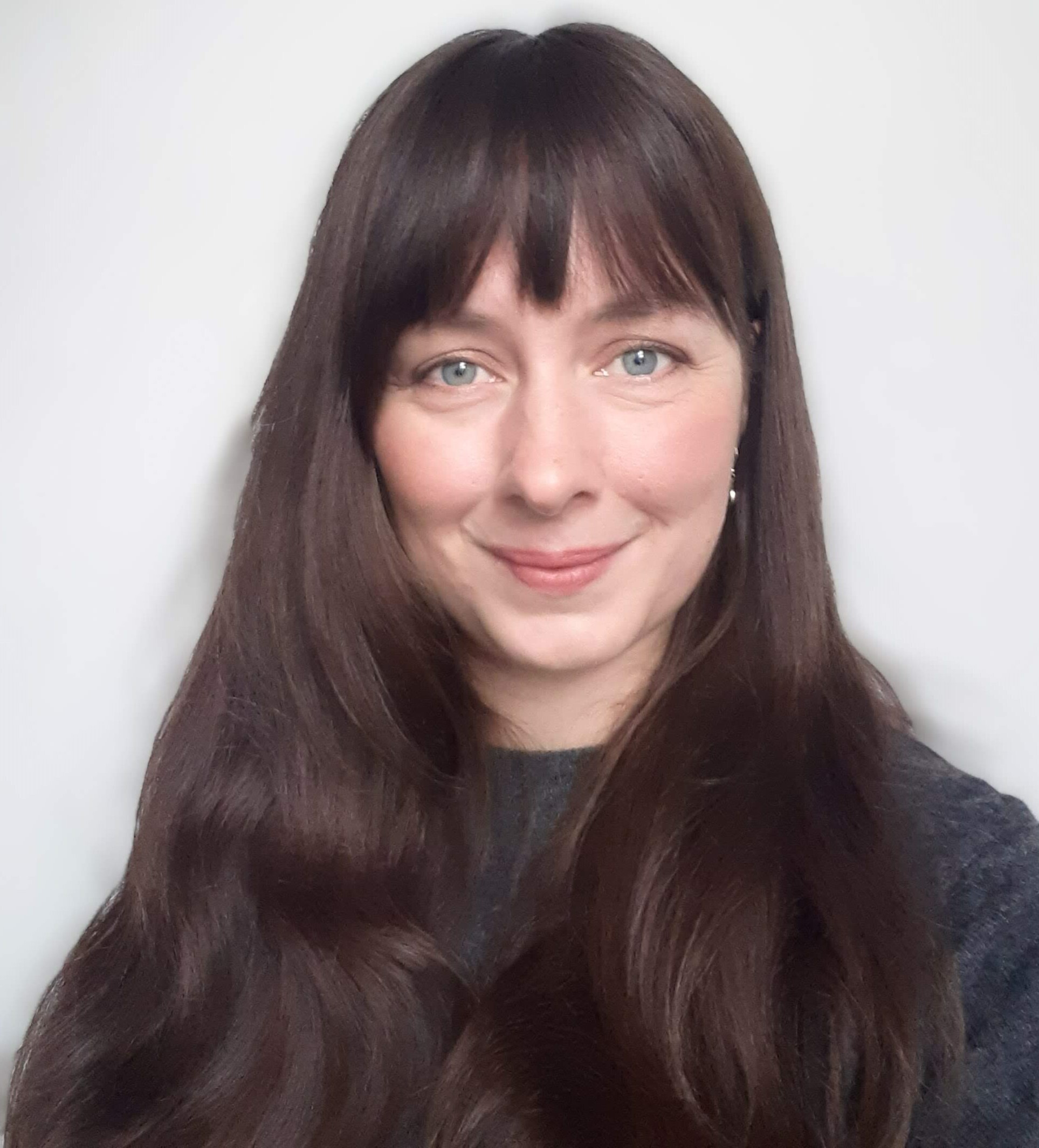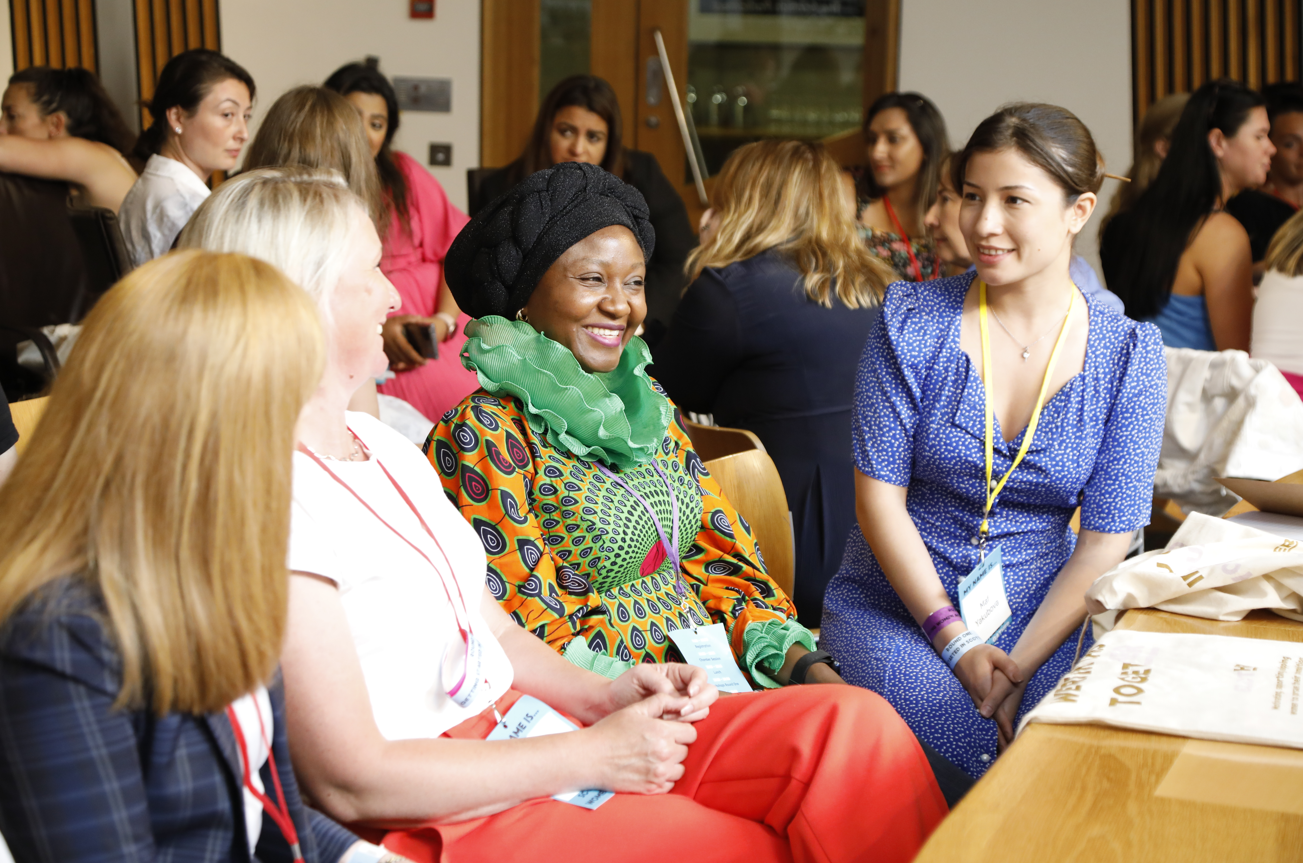Our ambitions to 2030: Measuring impact and success
In the next instalment of our blog series on Firstport’s new strategic ambitions, Head of Programmes, Kirstie Penman, updates on our ambition to be impactful.
At Firstport, we think that impact sits at the heart of everything we do. Every social entrepreneur we have worked with has been encouraged (or perhaps pestered at times) to pin down their social impact. We tell them they must be able to talk about the change they want to create, have mechanisms to measure it and work out whether that change is happening. But what about Firstport? We are a social enterprise ourselves, after all.
While defining our new strategic ambitions, we repeatedly returned to this point. Do we practice what we preach? How well do we demonstrate and communicate our impact? What is the positive impact we have on social entrepreneurs and the sector?

Understanding what works
Our strategic ambition is to “demonstrate the difference we are making insightfully and transparently by 2030“, and through discussions, we realised that there are areas where we need to improve to fulfil that ambition. These areas are the key results we are now working towards in our OKRs framework.
One of those key results relates to understanding and tracking our measures of success.
To measure success, we, of course, collect and analyse data (and we have a lot of it), but to get a complete picture of what works and why, we also need to understand what makes an intervention successful, i.e. which elements of our support, funding, comms or processes make the most difference.
One programme where we have made good strides in understanding our impact is the Social Entrepreneurs Fund (SEF), the flagship grant funding programme we have delivered since 2009 on behalf of the Scottish Government.
We are proud that, over the years, we have reached a wonderfully diverse and inspiring range of people with equally varied ideas. We genuinely don’t know what we will see next, and for our team, this keeps the job exciting and gets us out of bed in the morning! But there’s more to it than that.

Accessibility by design
From Firstport’s beginnings, we have been guided by the fact that many applicants are inspired to set up their social enterprises by their own lived experiences – and we see this as a massive plus. These individuals know what they are talking about. They know what needs fixing and are full of ideas on how to do it. Their lived experience is what drives them to keep going when things get hard and where other business start-ups might be tempted to pack in.
However, this experience often comes with added pressures and barriers to overcome. With that in mind, we have intentionally designed our support to be accessible to individuals with different needs.
And while (mostly anecdotally) we’ve known for years that SEF has done a good job at attracting, and importantly funding, social entrepreneurs from diverse backgrounds, we hadn’t fully explored how and why SEF works so well in that respect.
Success in diversity
So recently, we took the opportunity to look back at the achievements of the funding streams we deliver under SEF. We concentrated on the period between April 2021 and March 2024. This timeframe gave us more context than just looking at one year in isolation whilst avoiding being skewed by the COVID-19 pandemic period when these programmes were on hold.
What we found in terms of diversity was very encouraging. During this time, of the applicants we supported:
- 28% identified as coming from a minority ethnic background – This compares against 12.9% of the total Scottish population, according to the 2022 census (we used the same definition of minority ethnic group or background as the census, i.e. all groups except White Scottish or White – Other British). We’re delighted to see this result, given that individuals in this demographic can face additional barriers to accessing support elsewhere, such as English not being a first language or even racial discrimination.
- 63% were women – Since the earliest days of SEF, most applicants and awardees have been women. Given that our awardees typically continue in leadership roles within their organisations, this significantly bucks the trend seen in other sectors.
- 43% were from areas ranked 1-5 on the Scottish Index of Multiple Deprivation – We might expect to see more social issues emerging in the most deprived areas, but the fact that so many local people in these areas have been empowered by SEF to step forward and tackle those issues themselves has been inspiring.
- 28% were from remote and/or rural areas (according to the Scottish Government 2016 Urban Rural Classification) – this compares against the 17% of the Scottish population who live in rural areas (6% in remote rural and 11% in accessible rural). This is important because rural applicants often tell us about issues specific to their location. In addition:
- The top 2 areas where we made the most awards per capita are 100% remote and rural- Na h-Eileanan Siar and Orkney, with Argyll and Bute (77% remote/rural) in 3rd place.
- We received applications from all 32 local authority areas in Scotland. We made awards in 31 of those areas, only missing out on Shetland.
- 18% identified as living with a disability – This compares against the Department of Work and Pensions estimates that up to 26% of the Scottish population live with a disability. Given that a significant proportion of that figure represents individuals who are unable to work, let alone start a business of their own, we are encouraged to see so many individuals living with a disability succeed with SEF.
- 10% described their sexuality as bisexual, gay or lesbian. A further 2.4% responded prefer to self-describe. This compares against 4% of people over 16 identifying as LGBTQi+ in the census. We have anecdotal reports from LGBTQi+ awardees who feel their sexuality or gender identity has blocked them from accessing other services or sources of support. It means a lot to us that we have been able to support so many individuals from this community.

Digging beneath the surface
On their own, these figures look impressive. But what is it about SEF that allows for diversity to shine through? And how can we replicate that impact across other programmes?
We have some ideas on why that is and what makes us different– mainly because we hear it from the applicants.
- We can support individuals – We are unique in our ability to support and fund individuals as opposed to incorporated organisations or registered charities.
- Our assessment process – The application form is only a small part of our assessment process. We do most of our assessment through direct conversation with an applicant. This means that we make our decisions based on an applicant’s ability to set up and run their proposed enterprises – i.e. their skills, experience and motivation – and not their ability to fill in a form. This levels the playing field for those who struggle with written communication – such as English not being their first language, dyslexia or similar conditions, or a limited conventional education – or just preferring to talk to a human! Time after time, this comes up in our feedback as being the game changer.
- Our people – The assessment process only works if we have a team with the right skills and outlook to implement it. When we recruit Relationship Managers, we screen carefully for their ability to report objectively on the meetings with our candidates. We want to know they value lived experience and won’t be influenced by personal prejudices. All team members have undergone unconscious bias training, and we have systems in place to check and challenge each other’s opinions and assumptions in a safe and supportive environment.
- Our partnership approach – We work with partners and intermediaries who work as hard as we do to reach our applicants. This includes partners in the Just Enterprise consortium, a key source of nationwide referrals and the backbone of our business support provision. We also count enterprises led by previous awardees among our partners. They have provided trusted networking and sponsorship opportunities for us to connect with potential applicants through events such as the Scottish Black Talent Summit, the Proudly Black and Scottish Awards and a partnership with Dechomai supported by Ecosystem Funding.
- Targeted outreach – We work hard to ensure that information on our services reaches as wide an audience as possible. This includes specific initiatives targeting different communities. Some recent examples include:
- Ready to RISE: a programme delivered in partnership with The Challenges Group, which addresses women’s meaningful participation in the labour market and acts as a gateway to mainstream entrepreneurial support.
- A partnership with CEMVO to identify candidates for our Pipeline Fund. This fund aims to support and increase confidence in early-stage applicants, particularly those from marginalised backgrounds.
- Working with Community Enterprise to support community groups who struggle to access support to become financially sustainable.
- Measures to improve accessibility and additional support – We encourage applicants with additional needs to guide us on how to make our services and processes accessible. This has included training in inclusive communication, using plain English across our website, application forms and guidance notes, working with BSL interpreters and connecting with support workers. We also provide coaching sessions for successful applicants who could benefit from more intensive personal support to protect their well-being and work-life balance.
As we grow and develop new funding streams, we’re making a concerted effort to build on these tried and tested principles.
In 2023, we put these principles to the test to design and deliver our first funding programme outside of Scotland, the Social Enterprise Boost Fund, on behalf of the UK Government. We took care to engage with a trusted and experienced partner organisation – Project North East – whose skills in targeted outreach have been instrumental.
Now what
So far so good? Job done? Hardly. As proud as we are of these results, if we are to accomplish our impactful ambition, there is plenty of work to do.
We have identified some crucial areas for improvement, and we are using our company OKR framework to break them down into manageable chunks:
- Transparency: We know we haven’t done enough to share what we are funding and what we are learning from the enterprises we support. Blogs like this one are a start, but for this coming quarter, we are also planning to publish our data in the 360giving platform so we can start contributing to the broader grant-giving landscape in the UK.
- Better evaluation: We deliver a range of programmes that work in different ways and target different beneficiaries. This means we do not always collect the same information across programmes, which restricts our ability to measure and track short-term and long-term outcomes in a standardised way. We are already working on a new evaluation framework and have introduced a new assessment for clients when they first receive business support, which we will track over time.
- Ensuring diversity across all our programmes: Our approach is successful in helping individuals get a foot on the ladder with small amounts of start-up funding, but as our clients move from grants to repayable finance, the numbers get smaller, and so do the diversity of those who apply.
We know that this is not an isolated issue. The recent Access Report 2024: Investigating Access to Finance for Ethnic Minority Social Entrepreneurs highlighted that “Scottish ethnic minority social entrepreneurs are enthusiastic about initiating fresh social initiatives and simultaneously growing established ones. However, they frequently encounter obstacles that hinder their progress.”
As a result of the report and working with Dechomai and SIS, our investment readiness programme LaunchMe is running a specific intake for ethnic minority social entrepreneurs this autumn and adapting its content to respond to needs identified in the report. In addition, we are reviewing internal processes to find areas where we can remove barriers relating to application forms, procedures and support.

We’ve already seen what our awardees can achieve with the right support, so we want to do more to help them make that leap to the next exciting stage in their journeys, wherever that takes them. After all, there is no better way to demonstrate our impact than seeing them succeed.
Kirstie Penman is the Head of Programmes at Firstport. This is the second blog of our ‘Strategic Ambitions to 2030’ series. You can read the previous one here.
